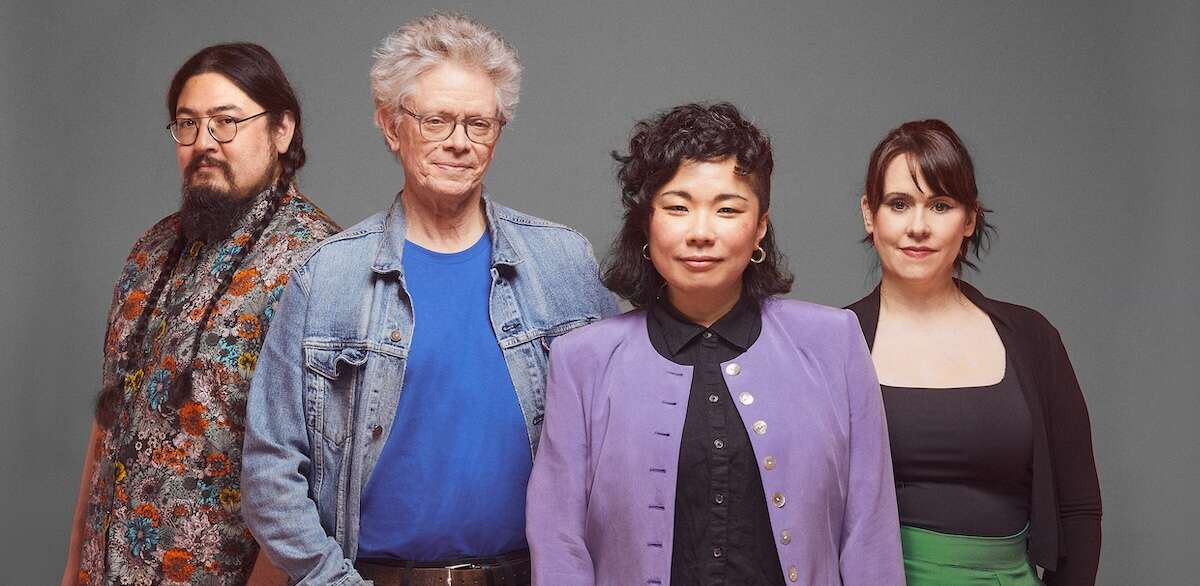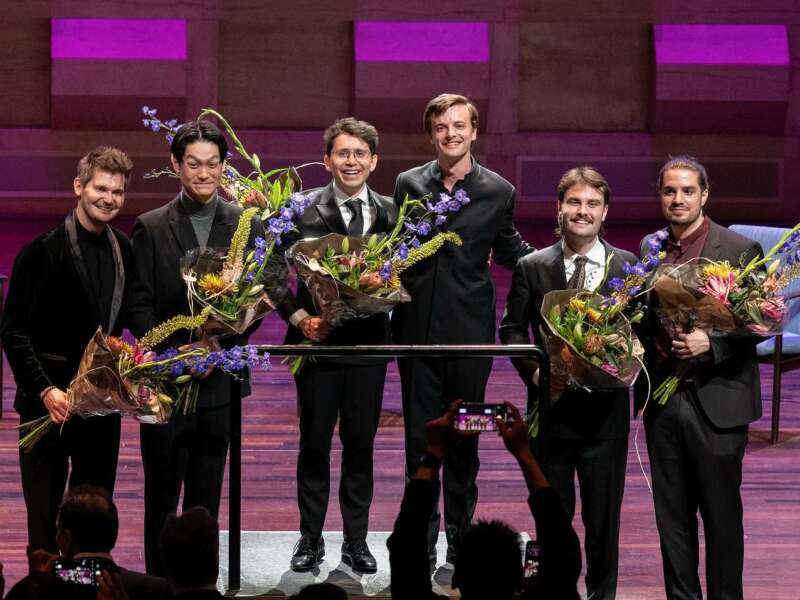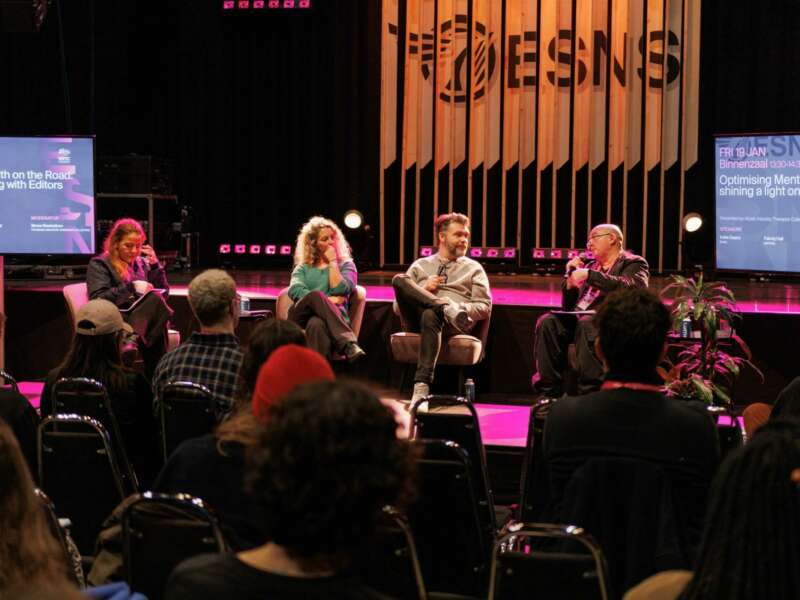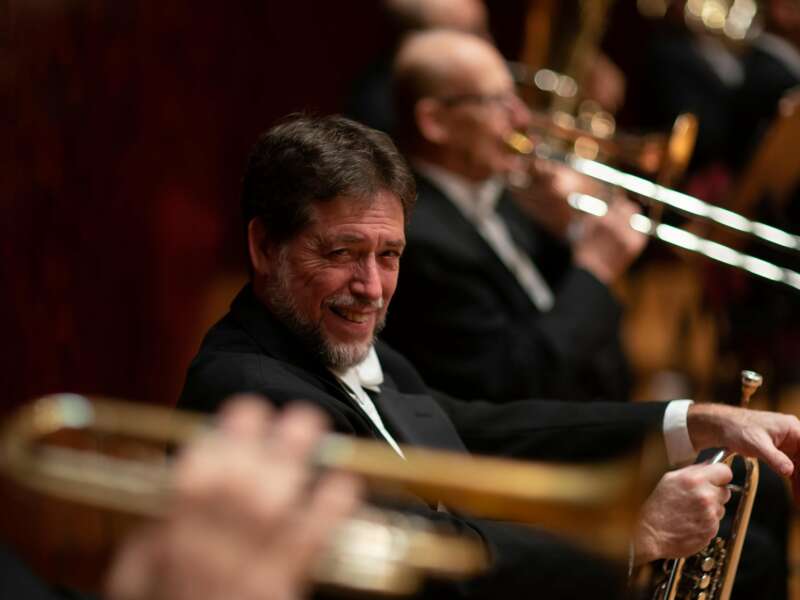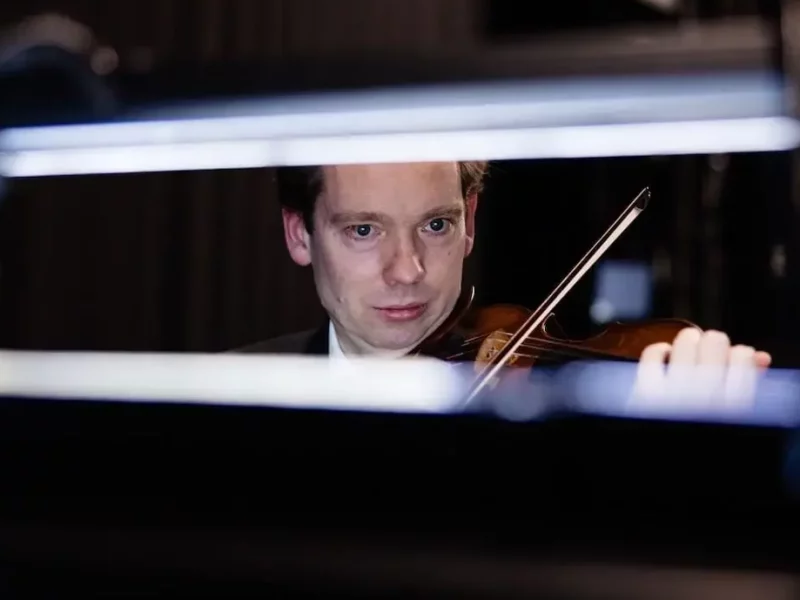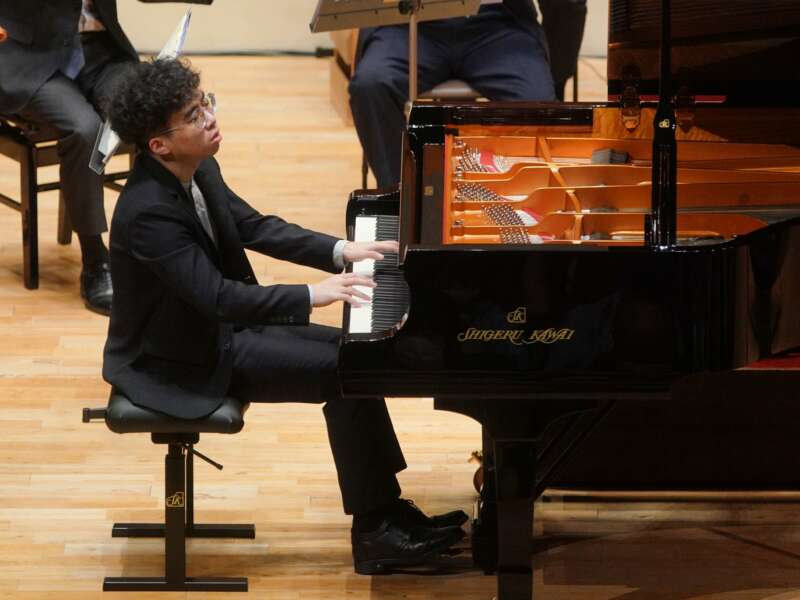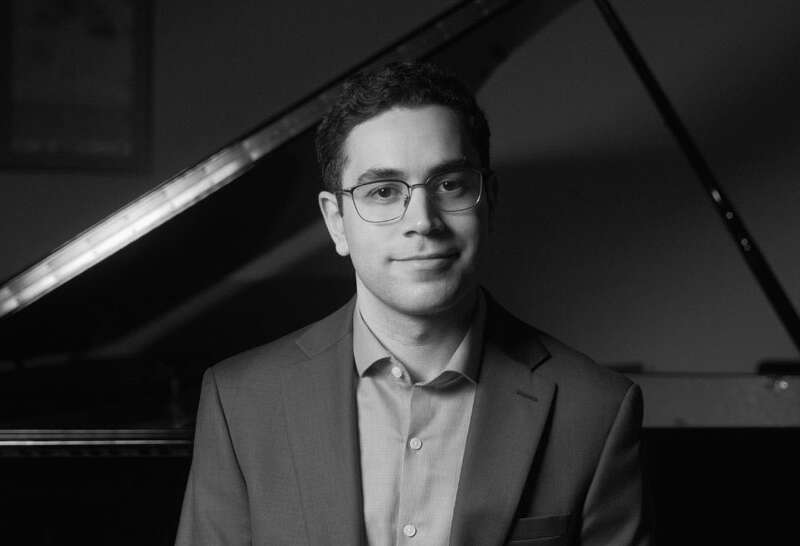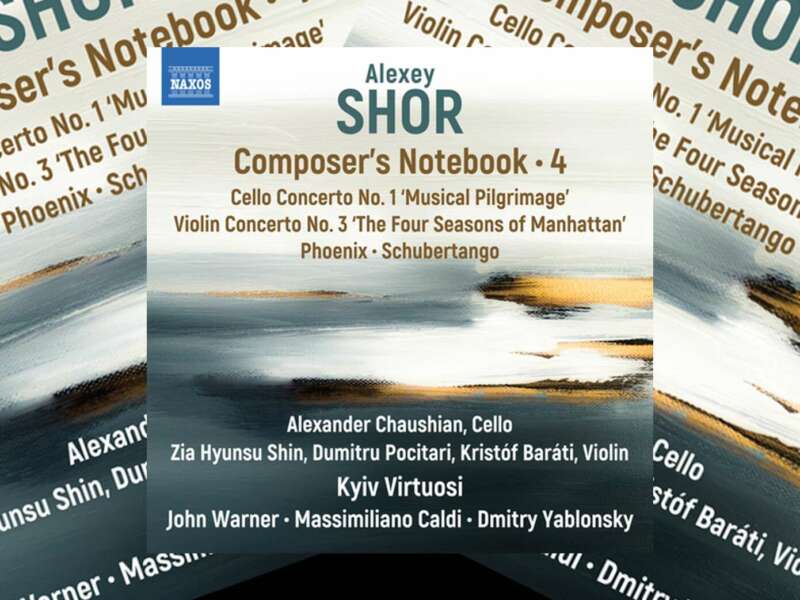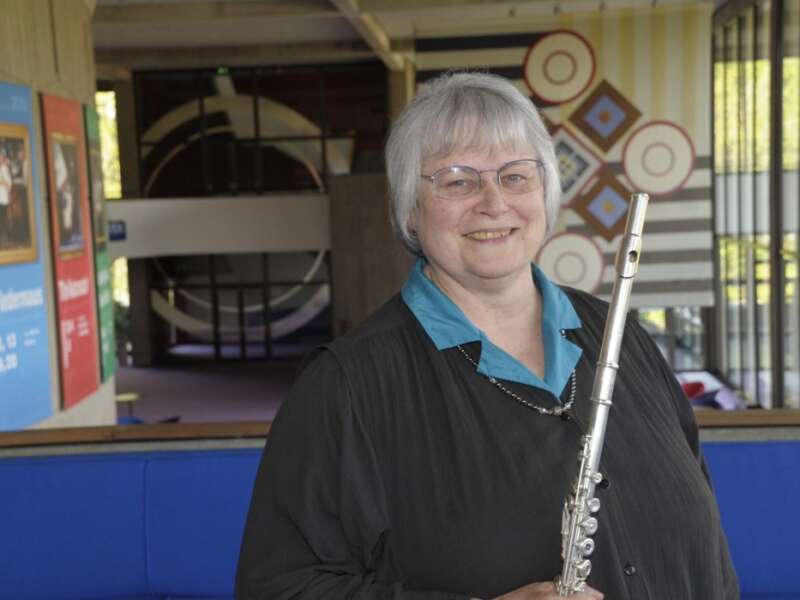Violinist David Harrington on the Kronos Quartet's 50th Anniversary Season
We had the pleasure of chatting with the violinist about his time with the group, his expert advice, and the new “50 for the Future” project
The Kronos Quartet recently celebrated its 50th anniversary season and launched its Kronos Fifty for the Future — a free library of fifty contemporary works designed to guide string quartets in developing and honing the skills required for the performance of 21st-century repertoire.
After a dynamic performance of five works from this collection at the 2024 Banff Centre International String Quartet Festival, we talked with the Kronos violinist David Harrington to get an inside look at his years with the quartet and his expert advice.
Additionally, audiences can tune into additional performances of the 2024 Banff Centre International String Quartet Festival on The Violin Channel.
Can you tell us about the history of the Kronos Quartet and its philosophy?
Kronos began in September 1973 in the aftermath of the American War in Vietnam. I wanted us to take the handmade expressive force of the string quartet medium and launch it as a living counterbalance to what that war had brought. I always feel most alive when we are adding new layers, dimensions, and elements to what a string quartet might be in this world — what we might play, who we might play with, and where we might play it. We go to all sorts of lengths to locate the most amazing musical experiences we can possibly find. Then we gather as much evidence as possible, practice and prepare as much as time allows, and then set the music free as boldly and vividly as we can.
We are privileged to provide musical experiences for ourselves, our families, and our audiences. Having engaged in this process daily for 51 years, a community has slowly grown around Kronos. We ask questions like "What is a note? What is music? What is a concert? What hasn’t been here before that should be here now? Who hasn’t been here before?"
My opinion is that no one owns music, rather we get to share it for a time. Part of our job is to listen with focus and depth and then transmit what we hear through the notes we get to play. My opinion also is that the string quartet form gives humanity the largest, most flexible sonic pallet from which to confront the future of any form invented by people. When I think about it, Kronos is just beginning and there is a lot to do.
What have been some of your favorite milestones in those past 50 years?
The career of Kronos has been filled with many high points so far. Among my favorites are:
- The first time there were belly laughs at a KQ show was when we played ’TV Madness’ during which my 3-year-old son said loudly "Daddy’s playing Popeye!"
- After 40 years, finally performing at the Esterhazy Palace — we played for all very distant relatives of Haydn and opened with Geeshie Wiley’s ‘Last Kind Words’
- Last November's Carnegie Hall 50th year celebration — the stage was filled with friends playing Terry Riley’s ‘Sunrise’ and the audience gave us so much
- My daughter’s 3rd-grade classroom where she used our ’50 For The Future’ as she was teaching music to her students. We got all set and I said "We’d like to open with ’Satellites’ by Garth Knox" and the whole class erupted into a standing ovation before we played a single note! This was proof that unfamiliar music, when properly introduced can have a big impact.
- Playing all of Alfred Schnittke’s quartets at Moscow Conservatory
- Performing on Sesame Street — I promised my kids I’d get them each a yellow feather from Big Bird. There was one on the floor and the other one I had to pluck from behind!
- Performances with Asha Bhosle, Howard Zinn, Terry Riley, Wu Man, Noam Chomsky, Tanya Tagaq, Tom Waits, Philip Glass, Eiko Otake, Dumisani Maraire, Max Roach, San Francisco Girl’s Chorus, Mahsa Vahdat, Allen Ginsberg, Alim and Fargana Qasimov, Zakir Hussain, Astor Piazzolla, Taraf de Haidouks, Trio da Kali…
- Recoring "Nuevo" album in Palacio de Bellas Artes in Mexico City
- Playing Henryk Gorecki’s Quartets in Poland
- "A Thousand Thoughts" with Sam Green
- The premiere of Steve Reich’s ‘Different Trains’ in London
- The concert in Paris when my teacher Veda Reynolds came with her binoculars in order to watch my bow arm and then we had a violin lesson after the show. I remember her saying: "Dave, if you would just let your elbow drop a little earlier you would have more success."
What advice would you give to quartets whose memberships change throughout the years? Does it change core aspects of the quartet or do you try to keep a similar direction?
There is not a recipe for making a quartet work out. For me, someone in a group has to carry the sound around inside of themselves day in and day out. The advantage I’ve had is that I don’t think of myself as a violinist independent of Kronos. For me, my instrument is Kronos. I deal with the violin in order to get to play in Kronos. The sound I think with, the sound of my thoughts is the sound of the members of KQ. When I’m imagining future adventures, I’m guided by the sounds I hear and those I haven’t heard yet.
Our membership has changed over the years. What has not changed is that we’ve always had fabulous players who are really good people — lovers of music and musical adventurers who want to take this art form boldly as far as we possibly can. Recently, my friend, composer Terry Riley said to me when I told him big changes were coming in Kronos, "Change is good."
The most important advice I ever received was from Margaret Lyon, chair of music at Mills College. On September 20, 1978, two members of Kronos came to our apartment to say that they had to leave Kronos effective immediately. My son was 4 days old. KQ was to begin our artist-in-residence at Mills College the next month. So suddenly Hank and I were a duo. He got on the phone to call cellists and violinists and my job was to tell Margaret this news. Her words remain inside of me: "Oh David, don’t worry. I know you will solve this problem." [everyone needs a Margaret Lyon in their life!] With a lot of help and a lot of work, we soon found John and Joan.
Tell us about the innovative project “50 for the Future.” Where did the idea come from?
Kronos Fifty for the Future is a free library of music written for Kronos and available to musicians, composers, and audiences any time of the day or night.
Visit https://50ftf.kronosquartet.org/
Fifty for the Future was curated to address many of the issues involved in learning 21st-century string quartet music. You can hear each composer speak about their work and you can see the scores and parts which are downloadable for free. You can also hear KQ performances of each piece. My hope is that with this tool I will never hear again from a chamber music teacher that "we couldn’t locate music in time so our students will have to play X, Y or Z standard composer whose name we already know."
Kronos has played frequently each of the Fifty for the Future works in major concert halls, classrooms — you name it, wherever we play music.
What are you hoping to achieve with this project?
What I would like to achieve with Kronos Fifty for the Future is a realignment of possibilities for quartets worldwide. I’m hoping that groups will feel empowered to explore the world in every way musicians can explore and that Fifty for the Future can be a guide for learning and discovery. If we’ve done our job correctly, groups from every corner of the world will soon be using Fifty for the Future to spice up, enlarge, and broaden their choices of repertoire. Also, I hope that others will join in and find how much fun it is to explore the world of music.
This summer you performed at the renowned Banff String Quartet Festival. What do you enjoy most about being at the Banff Festival?<
Banff represents a fantastic world of artistic possibilities. I look forward to learning as much as I can from all the other musicians and people from a wide range of fields and backgrounds.
What advice would you give to an up-and-coming quartet hoping to have a sustainable, long career?
A sustained career in music requires you to take every opportunity available. I remember Kronos had a weekly job playing in a restaurant in 1978/79. It was perfect for us because being so noisy in there no one could tell when something unfortunate happened when we performed a Schoenberg quartet we had practiced that very morning or maybe it was Xenakis, Bartok, or Ruth Crawford Seeger — whoever it was, we got a lot of good practice going for it and not stopping no matter what.
You also need to take very good care of yourselves. Stand up frequently in rehearsals, remember to take breaks, exercise, and be careful how you take your instrument out of an overhead bin: always stand right in front of your instrument case as you lift it down. Go to comedy clubs as often as you can. Read many different newspapers. Listen to the way composers talk about their music. Listen to music you’ve never heard before every day. In the words of Frederick Douglass: "Agitate! Agitate!! Agitate!!!"
june 2025
july 2025


